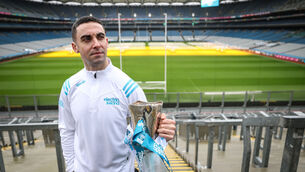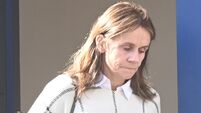Croker ‘may never play host to soccer or rugby’
Croke Park lacks floodlights and segregated seating for international soccer matches, while agreements would also need to be hammered out with the FAI and IRFU over a number of other matters, most notably rent.
Former president Peter Quinn suggested last week that the GAA should charge up to €1.2m for every game, 10 times the figure which the FAI pays the IRFU for every international at Lansdowne Road. “We’ll abide by the decision, but all it has done is give power to Central Council delegates who are still representing all the 32 counties and overseas units, so it’s still not clear-cut what’s going to happen,” said Armagh’s Patrick Óg Nugent. “It may not (go any further). The point was made that no other organisations has even looked for the ground yet. Who knows? Maybe they might find that the costs are too extreme.”













